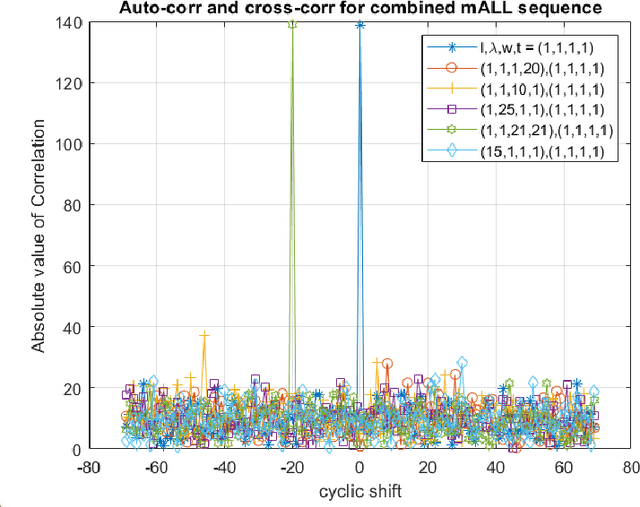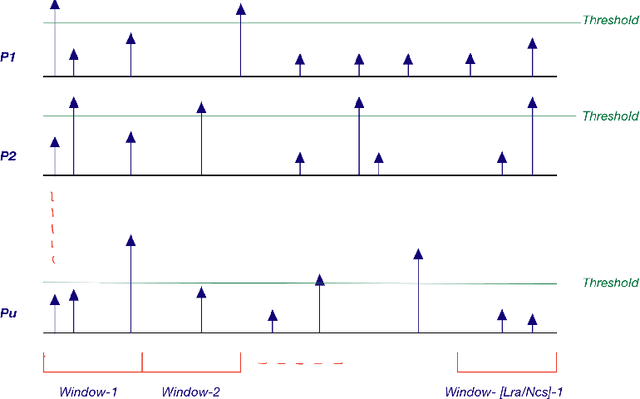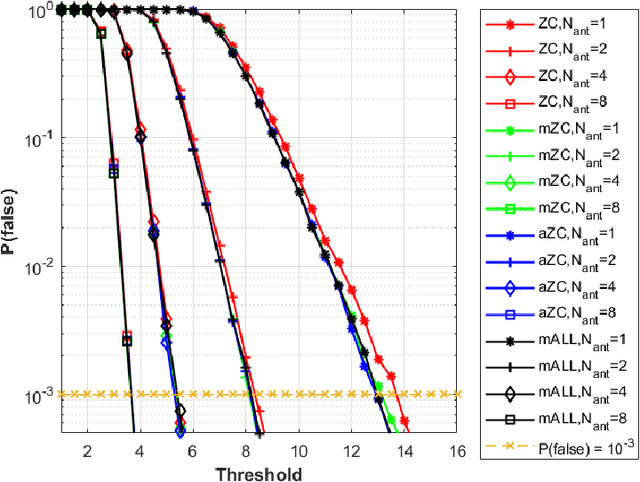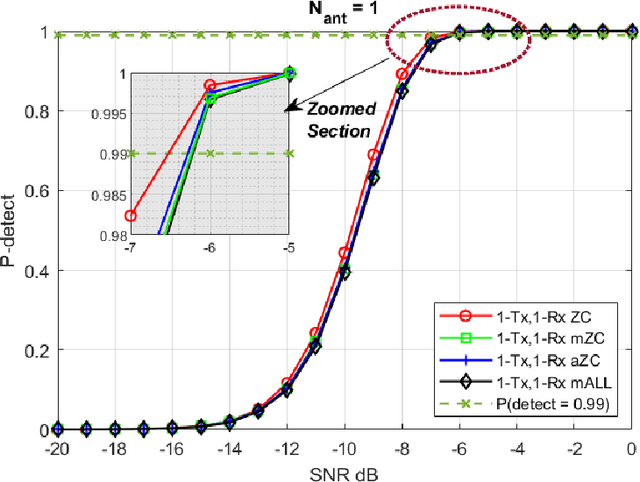T. G. Venkatesh
A High Capacity Preamble Sequence for Random Access in Beyond 5G Networks: Design and Analysis
Apr 10, 2022



Abstract:The widely used Zadoff-Chu sequence (ZC sequence) for random access preamble in 5G has limitations in terms of the total number of preambles generated, forcing the reuse of preambles. Hence, the probability of collision of preambles of UEs increase, resulting in the failure of random access procedure. To truly qualify beyond 5G networks as green technology, the preamble capacity should be increased without sacrificing energy efficiency. In this paper, we propose a new candidate preamble sequence called $mALL$ sequence using the concept of cover sequences to achieve higher preamble capacity without degrading the power efficiency and hence minimizing device's carbon footprint. We compare the performance of $mALL$ sequence with Zadoff-Chu sequence and other sequences in the literature, such as $mZC$ and $aZC$ sequences. We evaluate the performance of the preamble sequences in terms of periodic correlation, detection probability and the effect of diversity combining. Also, this paper explores the Peak to Average Power Ratio (PAPR) and Cubic Metric(CM) for these sequences, as these are essential parameters to evaluate energy efficiency. We show that the preamble capacity of the proposed $mALL$ sequence is $10^{4}$ times higher than that of legacy ZC sequence without any deterioration in the detection performance.
Channel Selection Algorithm for Cognitive Radio Networks with Heavy-Tailed Idle Times
Jul 15, 2016



Abstract:We consider a multichannel Cognitive Radio Network (CRN), where secondary users sequentially sense channels for opportunistic spectrum access. In this scenario, the Channel Selection Algorithm (CSA) allows secondary users to find a vacant channel with the minimal number of channel switches. Most of the existing CSA literature assumes exponential ON-OFF time distribution for primary users (PU) channel occupancy pattern. This exponential assumption might be helpful to get performance bounds; but not useful to evaluate the performance of CSA under realistic conditions. An in-depth analysis of independent spectrum measurement traces reveals that wireless channels have typically heavy-tailed PU OFF times. In this paper, we propose an extension to the Predictive CSA framework and its generalization for heavy tailed PU OFF time distribution, which represents realistic scenarios. In particular, we calculate the probability of channel being idle for hyper-exponential OFF times to use in CSA. We implement our proposed CSA framework in a wireless test-bed and comprehensively evaluate its performance by recreating the realistic PU channel occupancy patterns. The proposed CSA shows significant reduction in channel switches and energy consumption as compared to Predictive CSA which always assumes exponential PU ON-OFF times.Through our work, we show the impact of the PU channel occupancy pattern on the performance of CSA in multichannel CRN.
 Add to Chrome
Add to Chrome Add to Firefox
Add to Firefox Add to Edge
Add to Edge